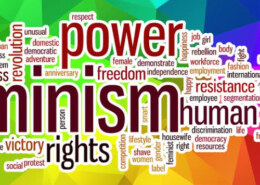How can grassroots organizations and community leaders contribute to changing perceptions and improving the status of women in their local areas?
Gender-based violence (GBV) impact extends beyond physical injuries for women. Impact on Mental Health Post-traumatic stress disorder (PTSD): Experiencing GBV can lead to PTSD, characterized by flashbacks, nightmares, and avoidance behaviors. Depression and anxiety: Survivors often grapple with feelRead more
Gender-based violence (GBV) impact extends beyond physical injuries for women.
Impact on Mental Health
- Post-traumatic stress disorder (PTSD): Experiencing GBV can lead to PTSD, characterized by flashbacks, nightmares, and avoidance behaviors.
- Depression and anxiety: Survivors often grapple with feelings of hopelessness, worthlessness, and fear, increasing their risk of depression and anxiety disorders.
- Low self-esteem and Suicidal thoughts: GBV can erode a woman’s self-worth and in extreme cases, can lead to suicidal ideation.
Impact on Career Prospects
- Absenteeism and reduced productivity: Mental health issues stemming from GBV can lead to difficulty concentrating, decreased job performance, and increased absenteeism.
- Job loss: Severe cases may force women to leave their jobs due to safety concerns or inability to cope.
- Economic dependence: GBV can limit women in their economic independence and career opportunities.
Addressing the long-term effects of GBV:
- Comprehensive mental health support: Providing accessible and specialized mental health services for survivors is crucial.
- Safe and supportive environments: Creating workplaces and communities free from violence is essential.
- Economic empowerment: Supporting women’s financial independence through job training and entrepreneurship programs can help survivors.
- Legal protection: Strengthening laws against GBV is crucial for deterring perpetrators and providing justice for survivors.
By addressing these issues, we can create a society where women can live free from violence and reach their full potential.
See less

Grassroots organizations and community leaders can fundamentally alter perceptions and improve the status of women through multifaceted strategies. Firstly, they can launch and sustain initiatives aimed at challenging and transforming gender stereotypes. These efforts may include hosting community wRead more
Grassroots organizations and community leaders can fundamentally alter perceptions and improve the status of women through multifaceted strategies. Firstly, they can launch and sustain initiatives aimed at challenging and transforming gender stereotypes. These efforts may include hosting community workshops, seminars, and dialogues that promote gender equality and highlight the critical role of women in society.
Secondly, these organizations can spearhead grassroots movements that advocate for women’s rights, directly engaging with policymakers to influence legislative changes. By mobilizing community support and raising awareness about women’s issues, they can create a groundswell of demand for reforms that benefit women.
Community leaders, with their deep understanding of local dynamics, can serve as powerful role models by openly supporting gender equality and encouraging other men to do the same. Their endorsement can significantly alter community attitudes towards women and catalyze a shift towards more inclusive practices.
Moreover, grassroots organizations can facilitate women’s access to education and vocational training, which are crucial for their empowerment and economic independence. By providing scholarships, creating mentorship programs, and partnering with local businesses to offer internships and job placements, these organizations can help women gain the skills and opportunities they need to succeed.
In addition, they can establish support systems for women, such as counseling services, legal aid, and shelters for those facing domestic violence. These services not only provide immediate relief but also empower women to assert their rights and live free from fear and oppression.
Through sustained efforts in education, advocacy, economic empowerment, and support services, grassroots organizations and community leaders can drive profound and enduring improvements in the status of women within their communities.
See less